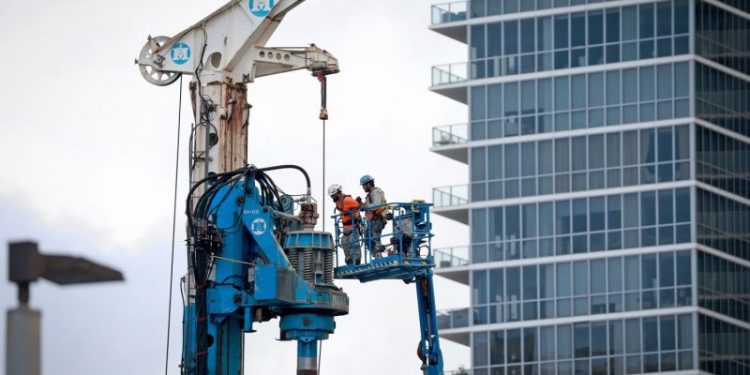The U.S. economy added 353,000 jobs in January, surpassing economists’ expectations and pointing to a stronger labor market recovery than previously anticipated. This significant increase in job growth reflects promising signs for the overall health and resiliency of the U.S. economy.
The latest report from the Labor Department revealed that the unemployment rate dropped to 6.3% in January, down from 6.7% in December. These numbers indicate that the pace of job creation has improved, signaling a positive trajectory for the nation’s economic recovery.
Various sectors experienced notable job gains, with the leisure and hospitality industry leading the way. This sector, heavily impacted by the COVID-19 pandemic, rebounded impressively in January, adding 355,000 jobs. With increased consumer confidence and easing travel restrictions, this surge in employment within the leisure and hospitality industry highlights the pent-up demand for services as people emerge from lockdowns and restrictions.
Other industries such as manufacturing, construction, and healthcare also contributed to the overall growth. Manufacturing, which has been gradually recovering from the disruptions caused by the pandemic, added 33,000 jobs. The construction industry gained 52,000 jobs, indicating continued investment in infrastructure and real estate projects. The healthcare sector, which has been a crucial area of focus during the pandemic, added 35,000 jobs, emphasizing the ongoing need for healthcare services.
Additionally, the average hourly wages increased by 5.4% from the previous year, reflecting a tight labor market and potentially suggesting upward pressure on wages. Higher wages contribute to increased consumer spending, stimulating economic growth and fostering a more robust recovery.
While these figures are undoubtedly positive, it is important to consider the challenges that lie ahead. The ongoing COVID-19 pandemic, despite the progress made with vaccine rollouts, continues to pose a threat to economic stability. New strains of the virus and the potential for future waves of infections could hinder the pace of job growth and extend the recovery period.
Furthermore, the long-term unemployment rate remains a concern. There are still a significant number of Americans who have been out of work for an extended period, facing difficulties in rejoining the labor force. Targeted support and training programs will be vital in helping these individuals secure employment opportunities and sustain long-term economic recovery.
In conclusion, the U.S. economy’s addition of 353,000 jobs in January is a positive development that surpasses expectations and provides encouraging signs for the recovery process. The job gains across various sectors, particularly within the leisure and hospitality industry, indicate increased consumer confidence and demand for services. However, challenges persist, including the ongoing pandemic and long-term unemployment. Continued government support, effective vaccination efforts, and targeted measures to assist job seekers will be vital in ensuring a sustainable and inclusive economic recovery moving forward.

















